For Honor review: "The middle ground between Street Fighter and Game of Thrones"
Why you can trust GamesRadar+
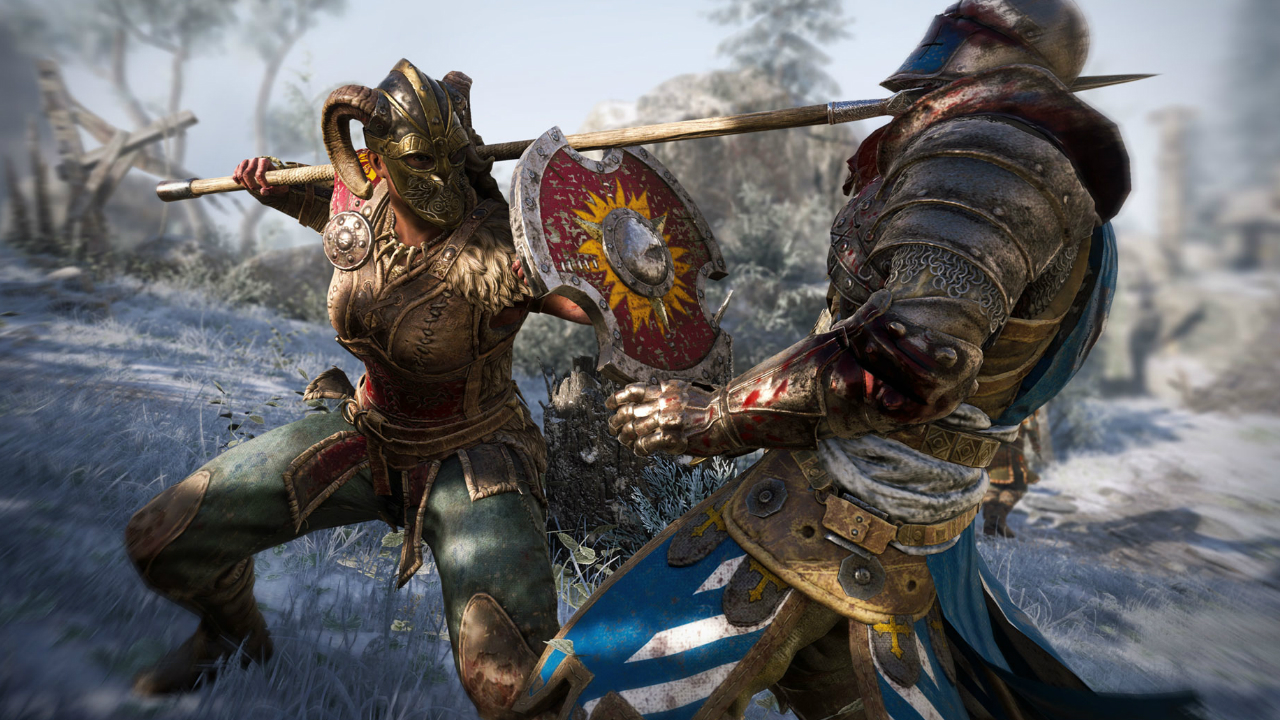
There's an old cliche, repeated late in For Honor's single-player campaign, that says you don't truly know somebody until you've fought them (ideally with swords). I don't know how true that is in real life, but the notion suits For Honor rather well. Ubisoft's medieval battle game boasts a deep and rewarding swordfighting system and uses this to power everything from story mode to four-on-four multiplayer to one-on-one duels. Yet the real value in this system comes from the way it exposes the personality of the person behind the controller.
As one of 12 initially-available characters you enter an online battlefield split between objective capture, elimination and deathmatch modes. It's a third-person game and combat uses a lock-on system similar to Dark Souls or the 3D Zeldas, albeit with directional control of your blade. Moving your blade into an opponent's incoming attack allows you to block, and chaining together light and heavy attacks leads to combos, unblockable finishers, and other familiar fighting game systems. Complexity builds outwards from there, from feints that allow you to cancel a heavy attack into a different strike to parries which send opponents reeling.
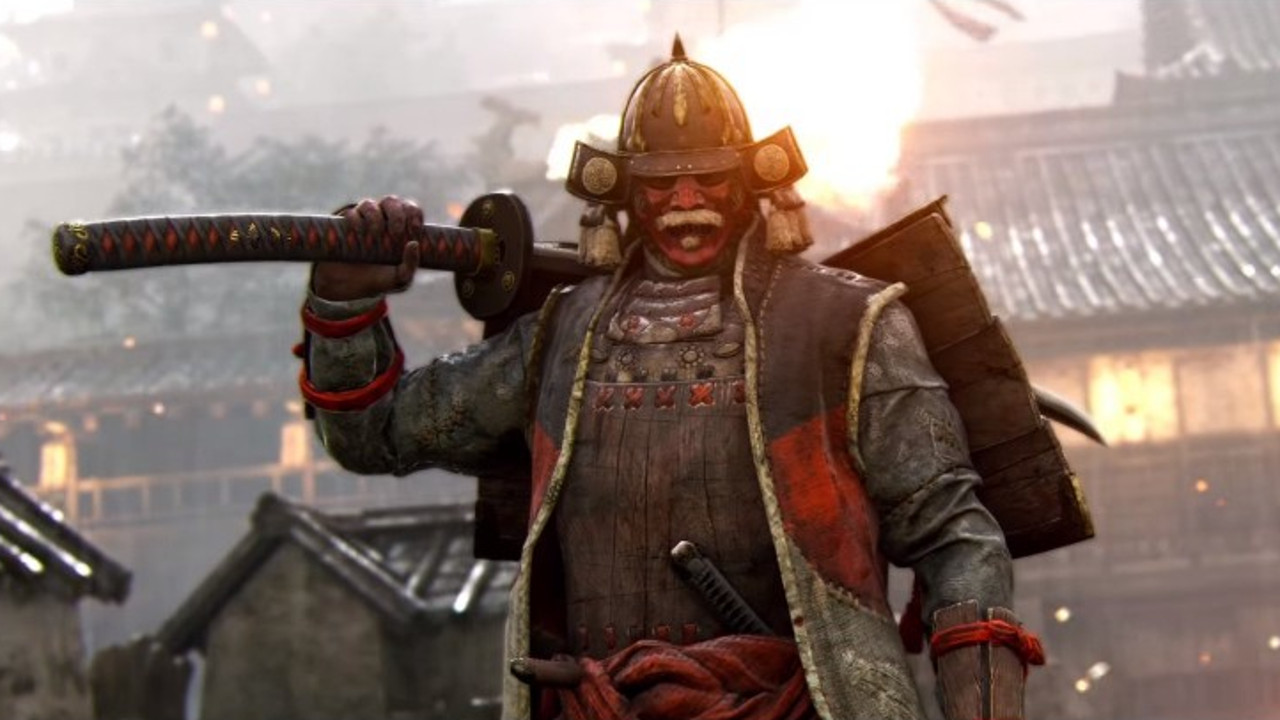
Guard break counters are grabs that introduce environmental play. Throwing an opponent into a wall opens them up to a follow-up heavy strike, while chucking them into spikes, lava, or off a bridge is an instant kill. In chaotic Dominion, a team-based capture point mode with a structure that will be familiar to shooter players, these antics are fair game. Somebody's trying to sneakily capture your tower? Throw them in the sea.
The less forgiving Elimination, Brawl and Duel modes (four-on-four, two-on-two and one-on-one respectively) are where your actions speak a little louder. There are no respawns, and each mode ultimately boils down to a series of one-on-one fights where each player's fighting style and character choice tells you something about what they value. On the duelling field, players will often informally opt out of environmental kills - they're funny but, given that they end a fight immediately, don't allow you to dig into all of the game's system. 'Honourable' duelling means relying on steel, not gravity.
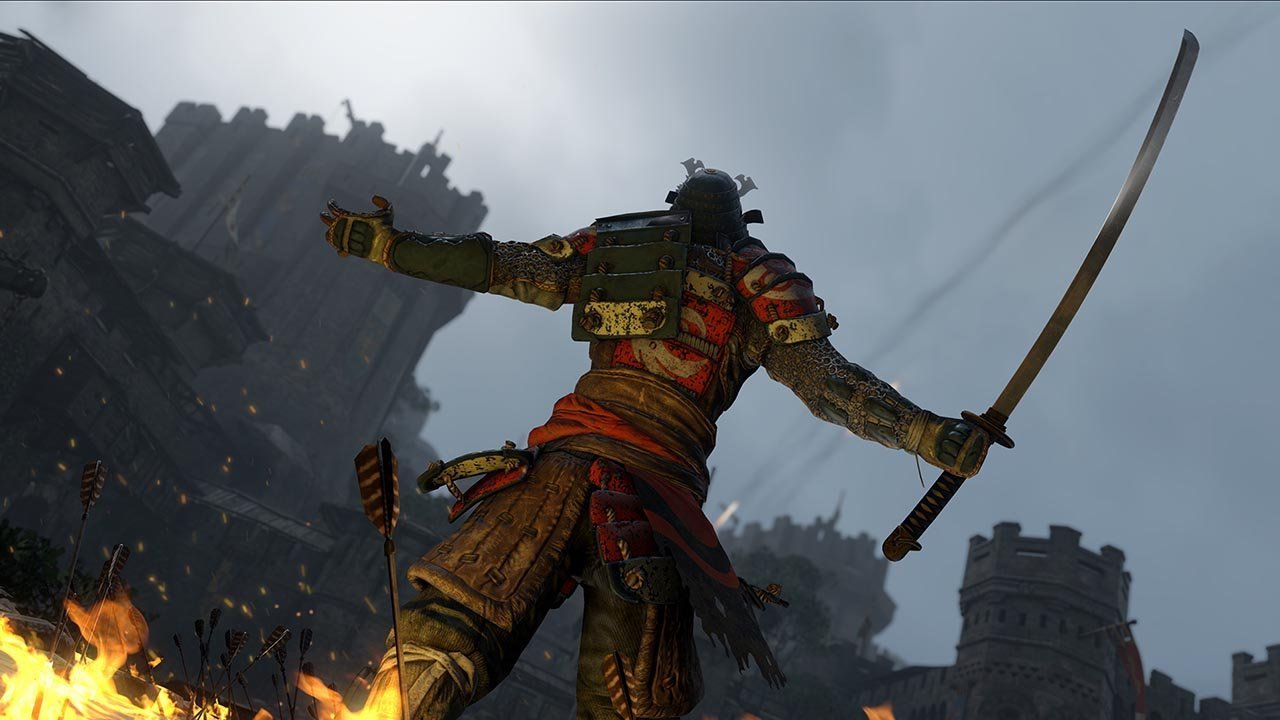
Yet a win is a win, and when their back is against the wall - or, more accurately, your back is against a ledge - gravity might just be what an opponent needs to turn a game. These heel turns can even become hero turns if they're how a lone warrior fends off multiple attackers in Elimination. The impact of this is that For Honor says much more about the personality of its players than the majority of multiplayer games. Fighting games come close - there's a similar emphasis on feeling out an opponent's fighting style - but the majority don't support For Honor's scale or spectacle. The people who get the most out of this game in the long run will be the ones who find the prospect of getting to know a new opponent in every match exciting. Beyond level ups, loot and mastery, your reward for perseverance are the war stories you accrue.
You should expect a fighting game-style learning curve and a decent time commitment if you'd like to get good. There's a high skill ceiling for the best players here, with a minimal luck element and a lot of combos and counters to learn. It's phenomenally rewarding to succeed and crushing to fail when you know that you're responsible for all of your successes and mistakes. While the occasional player will blame the game, their opponent or their character, this is incorrect. If you want to win more you've got to work - hell, if you don't like the idea of losing a lot then you've got to work. That's not going to be for everybody.
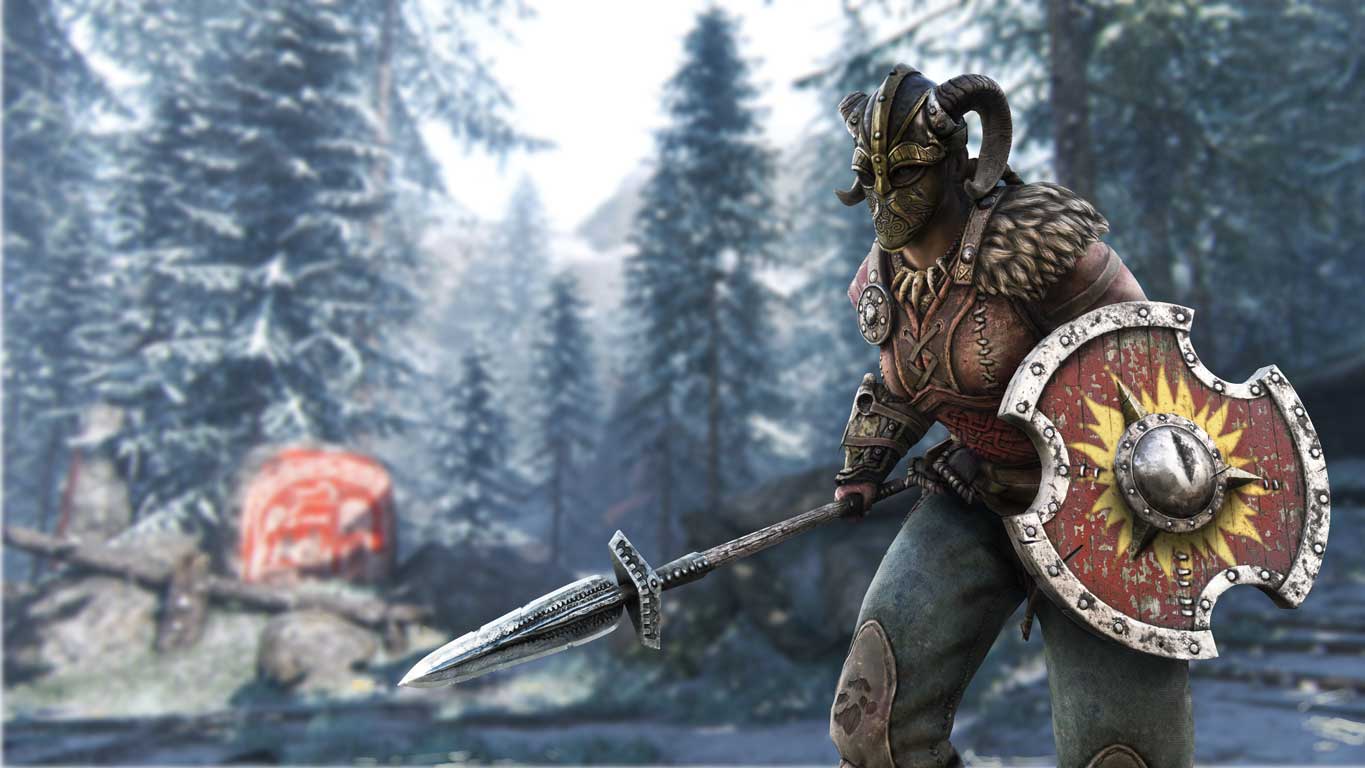
There's a lot of help available if climbing the ladder sounds appealing. There are cooperative modes where players take on AI opponents, and these provide the same rewards as playing against real people. You can also configure your own custom games in order to practice against bots, and the AI is sufficiently strong to teach you something. They'll feint, go for grabs and ledge kills, and even taunt you when they've done so.
The single-player mode tells the story of Apollyon, a mysterious warlord who intervenes in the lives of each of the game's three protagonists over the course of a decade. Starting with the knights, you undergo half a dozen missions for each faction, chiefly as the same character - the Warden, Raider and Orochi - but given the chance to try out others along the way. It's not an especially long campaign, and the experience is mixed.
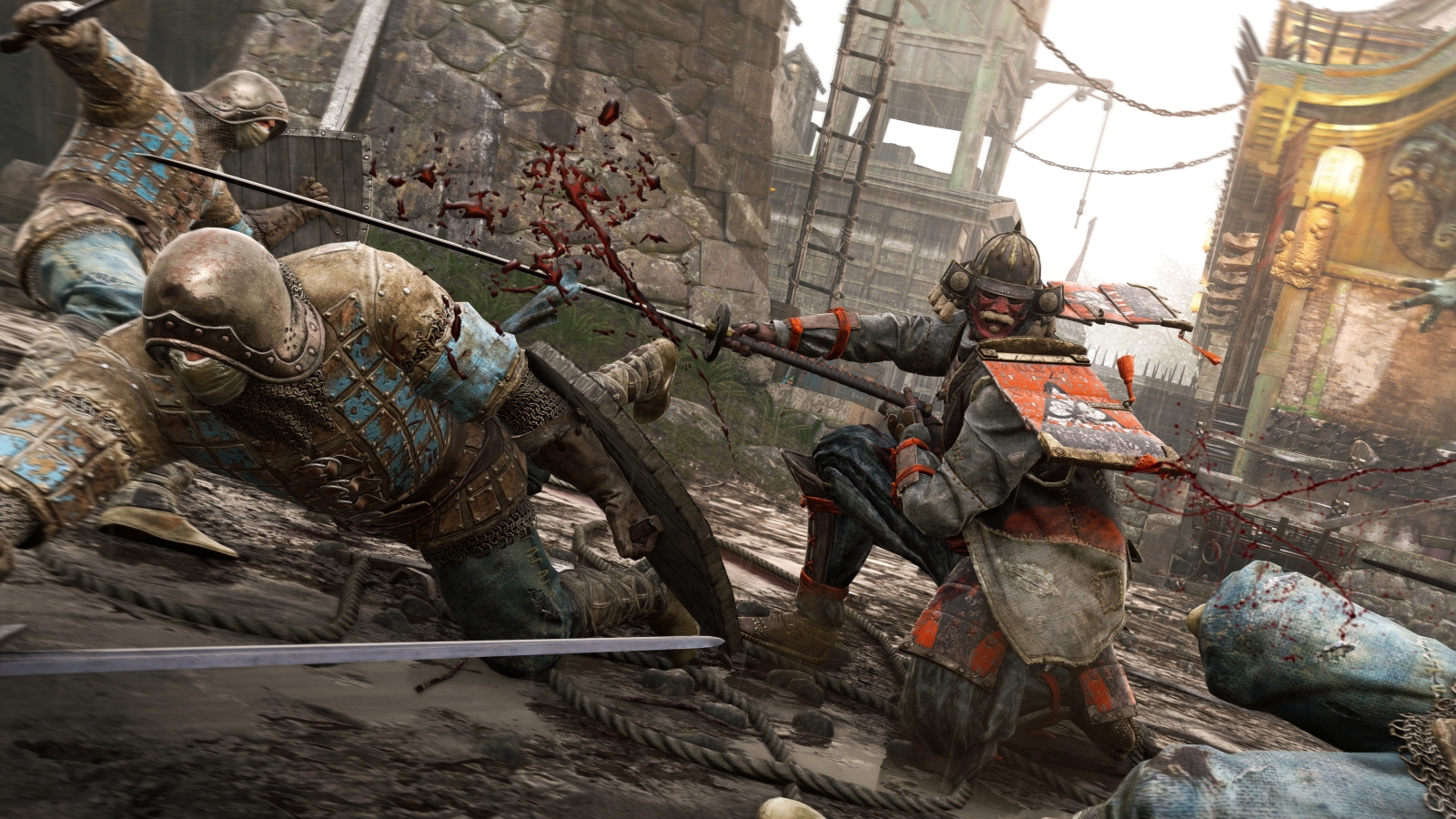
On one hand, For Honor's core fighting system and AI are good enough to ensure that battling your way through the story is consistently enjoyable. You'll learn a lot about how each class works, and a few smartly-designed boss battles blend multiplayer logic with a few single-player-only tweaks to provide a challenge that'll teach you something useful in the long term. It can be spectacular, too: a viking beach landing is a mid-campaign highlight.
Yet fighting really is all you do, with only the most basic collectibles to distract you as you run from fight to fight. For every spectacular new environment, many are repurposed from multiplayer. You'll fight over these familiar battlegrounds multiple times, and in one case you'll fight across the same map twice in a row. A few later missions suggest what a full-fat For Honor single-player campaign might look like - particularly one that sees you hunting samurai leadership in a relatively open zone - but as it is, it doesn't quite reach its potential. For Honor's real value comes from its multiplayer, ultimately. Story mode is an entertaining distraction if you're after a break from the duelling fields, but there's not enough there to justify the asking price if you're not interested in online play.
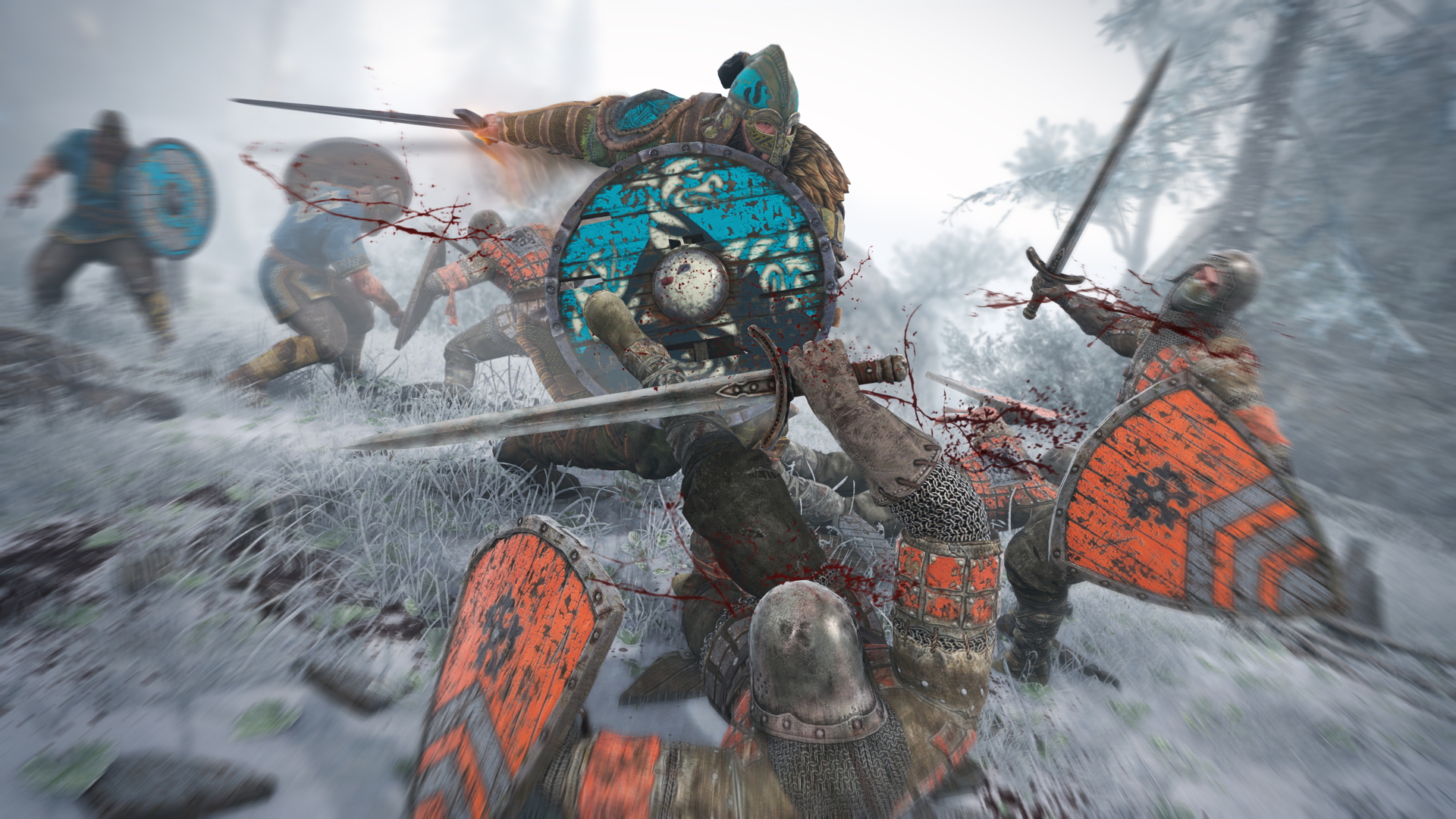
There are also loads of supporting systems that can get in the way from time to time. You unlock new equipment to tweak your chosen character's stats and contribute points from victories towards a metagame that pits the three factions against each other across the world map. When you first start playing this already-complicated game, these additional layers can feel excessive and unnecessary. They fade into the background after a while, but not before contributing to the notion that newcomers are in for a rough time.
For Honor offers real rewards for the players who love the drama of a duel and are willing to persist through those intimidating initial hours. It's for people who get excited about learning matchups and want to spend a few hours drilling plays and counterplays with their friends. It's an action game for fighting game people and a fighting game for action game people, a successful synthesis of two varied schools of design that finds the middle ground between Street Fighter and Game of Thrones. If you resonate with that idea, you'll find a lot to love here - as well as sparring partners with whom you share a lot of common ground. Until one of you throws the other off that common ground and into the sea, of course.
Weekly digests, tales from the communities you love, and more



